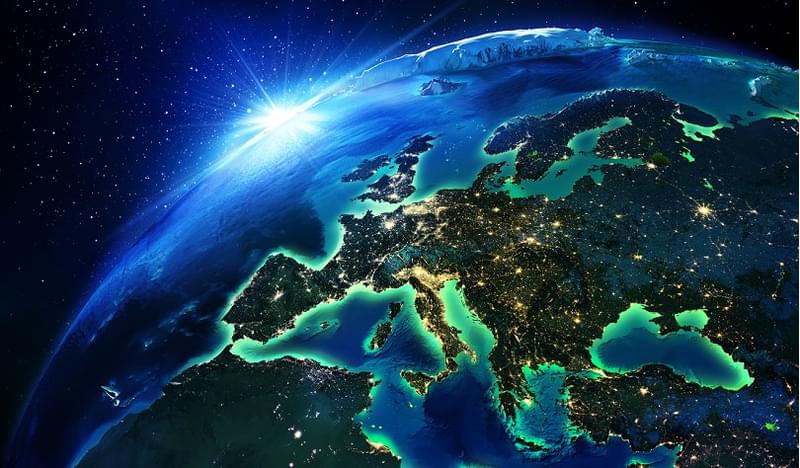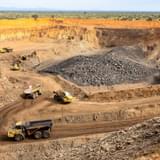Russia
Russia’s Central Bank has kept the key rate at 9% annually, as short-term and medium-term inflation risks remain, the regulator said on Friday. “Inflation remains around the targeted level, and economic activity continues to recover. At the same time, short-term and medium-term inflationary risks remain,” the bank said, according to RBC channel. Inflation reaching 4.4% in June was caused by dynamics of fruit and vegetable prices amid unfavourable weather conditions, the statement said.
Russia’s Central Bank plans to sell RUB150bn (approx. US$2.3bn) in OBR bonds from August 15th, according to press release. The sale will be the first to see OBR bonds, one of the Bank’s key liquidity absorption tools, carry a coupon, equivalent to its benchmark interest rate of 9%.
Russia’s B&N Bank has set the first coupon guidance of its RUB3bn 1-year exchange bonds at 11.00–11.25% annually, a Russia’s PRIME agency reported. The guidance corresponds to an 11.57–11.85% annual yield to maturity, with the technical placement scheduled for Wednesday. B&N Bank and Sovcombank act as organizers on the transaction.
President Donald Trump has signed into a law a bill which imposes new sanctions on Russia for their alleged meddling in the 2016 election. The bill, which was signed in private at the White House, also imposes sanctions on Iran and North Korea. In signing the Countering America's Adversaries Through Sanctions Act, Mr Trump attached a statement calling the sanctions "deeply flawed", according to BBC News. He accused Congress, which last week overwhelmingly passed the measure and sent it to the White House, of overstepping its constitutional authority.
Russia’s nickel production would remain on a negative trend this year, following a contraction of 4.8% year-on-year in 2016, according to BMI. The firm cited ongoing operational challenges at Norilsk Nickel mines, which account for more than 80% of domestic output. “Nickel will be the only base metal to decrease in price in the coming years, in contrast to the improving prospects of copper, aluminium, lead, tin and zinc,” the organisation said.
Inflation has dropped below the Central Bank’s target of 4% in July, standing at 3.9%. Last month the CBR decided to halt its easing cycle after encountering an unexpected spike in inflation, which picked up speed to 4.4% in June from 4.1% in May and the Central Bank left the benchmark interest rate at 9%.
Otkritie Bank, Russia's largest private bank, is talking to a number of potential investors as it seeks to boost its capital Reuters reported citing sources close to the bank. The sources said the talks were a part of the bank's "regular business process," without identifying the potential investors or providing other details. Otkritie announced plans to collect bids for a RUB30bn multitranche bond, which will include RUB5bn 12-year issue, a RUB10bn 12-year issue, and a RUB15bn 13-year issue.
Rosneft reported a net profit of US$1.4bn for the first half of 2017, down by 12.5% from January-June 2016 because of the strengthening of the Russian currency thanks to higher oil prices. These higher prices drove revenues higher, to US$50.1bn, up by almost 50% on the year, Rosneft said. EBITDA were also up, to US$11 billion, or 2.9% higher than in first-half 2016. Revenue of RUB1.4tn was up from 1.2tn a year earlier. Rosneft said its net debt stood at RUB2.2tn with free cash flow of RUB128bn as of June 30.
Rosneft in April made a US$1.015bn advance payment to PDVSA, Venezuela's state oil firm, under a crude oil purchase agreement with the company, the oil giant said in a quarterly financial report. As PDVSA faces a cash crunch and struggles to pay bondholders, it negotiated financial help from its Russian counterpart to complete its nearly US$3bn in debt payments in April, company sources told Reuters earlier this year. Rosneft had lent PDVSA US$4-5bn before the most recent agreement, according to Reuters.
Russia laid the groundwork for an operation that will reduce some of its closest and biggest dollar bond payments before the end of the year, Bloomberg reported. The Finance Ministry has permission to swap up to US$4bn of debt maturing in 2018, 2028 and 2030 into new notes, according to a decree published on the government’s website. The price of the exchange won’t exceed the current market value, according to the decree. The swap aims to lower Russia’s debt load and servicing costs and reduce the volume of payments owed before 2019, the decree said. Russia has US$3.5bn of bonds due in July 2018, its shortest-maturity dollar bond.
The rouble continued to weaken, pulled down by lower oil prices and the bigger-than-expected drop in U.S. oil inventories. By Wednesday morning, the rouble was 0.2% weaker against the dollar at 59.94 and had lost 0.1% to trade at 70.37 versus the euro. Brent crude oil was down 0.12% at $52.10 a barrel.
Capital outflows reached US$13bn between January and July 2017, compared to US$8.8bn taken out of the country in the same period last year, the Russian Central Bank announced.
CIS
Fitch Ratings affirmed the "B-" credit rating of Belarus, but at the same time revised the outlook to positive from stable.
Azerbaijan's Central Bank left its benchmark refinancing rate at 15%, saying "inflation expectations have continued to decline, but inflation and related risks have not been completely eliminated.” The CBA has kept its rate at the current level since raising it in September 2016, noting that macroeconomic stability in the country is deepening and business activity is improving while the exchange rate of the manat remains stable.
The European Bank for Reconstruction and Development (EBRD) is supporting women-led businesses and agriculture in Tajikistan with a US$2mn-equivalent Tajik somoni loan to Imon International, the country’s largest microfinance institution, becoming the second financial institution to join the EBRD’s Women in Business programme in Tajikistan, according to Global Trade Review.
New US sanctions against Russia will not affect multi-billion-dollar oil projects in Kazakhstan backed by Chevron, ExxonMobil and other western energy majors, the country’s Economy Minister has insisted. Fresh sanctions against Moscow signed into law by President Donald Trump this week directly target Russian energy export pipelines, raising fears that oil from Kazakhstan, which is exported along the Caspian Pipeline Consortium (CPC) pipeline that runs through Russia to the Black Sea, could be affected.
Ukraine’s state-owned oil and gas company Naftogaz could seek another U$5bn in compensation from Russia's Gazprom for losses caused by overpaying transit fees, according to Naftogaz's Chief Commercial Officer. The sum would add to the US$12.3bn it is seeking in compensation for overpayment related to a 2009 gas deal secured on terms that significantly disadvantaged the Ukrainian gas company. Russia has frequently leveraged its gas pipeline route into Ukraine to influence the country's policies towards the Kremlin and its neighbours.
Europe
Asset managers largely seemed to jump at the prospect of Greece's first sovereign bond in nearly half a decade, but investor views on the country's debt sustainability are mixed. Yield's on the government's €3bn 5-year bond moved from an initial yield of 4.6% down to 3.18% in trading last week. As of 2016, Greece recorded a debt-to-GDP ratio of 180%, which has now edged towards the 180% mark – the highest of any European country.
The European Commission said it would start legal action against Poland over an overhaul of the judiciary that it says undermines the independence of judges, despite the Polish President's veto of key parts of the controversial legislation. The new laws effectively give the national assembly the ability to elect members of a committee that then choose the country's Supreme Court judges. European Commission President Jean-Claude Juncker said it could suspend its voting rights in the EU despite the threat of a veto from Hungary, which has largely supported Poland's efforts to reform the judiciary.
French oil giant Engie could pull out of financing the Nordstream 2 pipeline project if additional sanctions are imposed on Russia and its state-linked energy companies. "If the (US) sanctions are actually applicable to the project then we might not continue to finance this project so as not to be subject to sanctions," Pierre Chareyre, the man in charge of Engie's Liquefied Natural Gas (LNG) business, told La Figaro newspaper. The official added that no decision has yet been made, and noted that "the law on sanctions is not retroactive, so only future transfers of funds would be at risk”.
Czech policymakers delivered their first interest rate hike since 2008, becoming the first European Union Central Bank to embark on a new tightening cycle in more than five years. The crown strengthened to 25.940 to the euro, up 0.6% on the day. It has gained 4% since the Central Bank abandoned a currency cap at around 27 per euro in April, its first step to normalising policy. The move reflects a growing desire among central banks to move away from post-financial crisis ultra-loose monetary policy, which has been hard to deliver amid uncertainty over inflation and growth.
Romania's Central Bank kept its benchmark interest rate unchanged at 1.75% as predicted remaining cautious amid wage increase pressures and fiscal uncertainty. The central bank currently forecasts inflation at 1.6% this year, but expects strong local demand to push it to 3.1% in 2018.
Serbia's Central Bank is expected to keep its benchmark rate unchanged at 4%, according to a Reuters poll. Last month the Central Bank opted to keep rates unchanged due to rising volatility in global markets. Inflation in June printed at 3.6%, within the target range.
Turkey
Albaraka Türk Katılım Bankası, a Turkish Islamic lender, has mandated its head office to arrange the issuance of a US$400mn sukuk offshore.
Turkey tourism sector is finally shows signs of recovery, with revenues up in the second quarter by 8.7% to US$5.41bn, compared to the same period in 2016, the FT reported. Tourist numbers to Turkey plunged to their worst levels since 1999 last April as Russian visitors stayed away from the country following a diplomatic spat between Ankara and Moscow.
Turkey's Eximbank signed a US$640mn syndicated loan this week, the lender's CEO announced. The transaction saw participation from 23 different lenders in 11 countries. The bank has not confirmed the tenor.
The President of the European Investment Bank has voiced concerns over a slowdown in the development of Turkish projects, in part due to political volatility in the country, according to an interview with the Luxemburger Wort. "Projects are thoroughly checked for technical, economic and financial sustainability. In view of these recent developments, the assessment process in Turkey takes longer nowadays than it would have taken five years ago, and more dimensions have to be scrutinised. I believe that, at the end of 2017, the volume in Turkey will be lower than in the years before," EIB President Werner Hoyer said. The EIB has been steadily investing in Turkey for 50 years, and has invested in a number of large flagship projects there including the Bospherus Tunnel and the TERRA programmes, and actively lends to a number of local banks in support of further SME on-lending. "The EIB is market-orientated, and we are also politically aware and sensitive, and we are seeing the political development in Turkey with great concern. This development might harm or endanger the further economic upswings of Turkey."
Turkish conglomerate Doğuş Holding placed a TRY350mn 4-year bond in international markets this week. The EBRD was one of the main anchor investors on the transaction, picking up TRY100mn of the floating-rate notes.
Turkey has joined the Association of Southeast Asian Nations (ASEAN) as a 'sectorial dialogue partner', the organisation announced. Turkey, which applied to the regional bloc in 2015, will work to improve bilateral trade relations with the organisation's ten members and help expose Turkish businesses to the region.
Bank lending in Turkey could grow between 16-18% annually by the end of 2017, according to the Turkish Banks Association. Ekrem Keskin, the general secretary of the organisation, that loan growth had already doubled in the first half of this year, compared with the same period in 2016. The country's lenders have faced strong political pressure to boost lending in the country as the economy continues to stagnate, but lenders are being hamstrung by political pressure to keep interest rates low, particularly for mortgages, making it difficult for many banks to lend to riskier projects.








